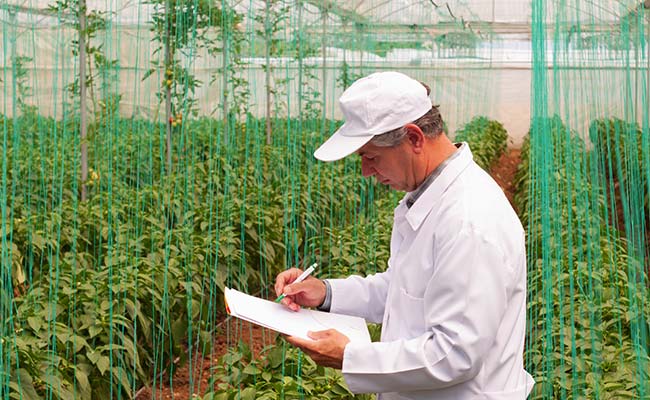
Govt has no records of exports data from Agri Export Zones
Himanshu Vatsa | The Dollar Business  The government has no records of exports and other details about 60 Agri Export Zones (AEZs) set up in various states. In order to promote India’s exports of processed agricultural products, AEZs were set up under several schemes of the Agricultural and Processed Food Products Export Development Authority (APEDA). These facilities have been set up in 20 states covering more than 230 districts. The project covers 35 crops including fruits, vegetables, spices, cashew, tea, basmati rice, medicinal plants, and pulses. The total investment under the AEZ programme by all agencies stands at Rs 1, 724 crore, including private investments of Rs 970 crore. “As on March 2012, all the 60 AEZs in 20 states have completed their notified span of five years. On account of this, state nodal agencies have not reported any information about exports and employment generation in these 60 AEZs since last three years,” said Nirmala Sitharaman, Minister of Commerce and Industry. Due to the lack of any progress report in the past three years, the government has not allocated any funds for AEZ in the last three years. “During the last three years, no funds have been allocated specifically for AEZs. However, the APEDA has extended financial assistance to exporters in the AEZs,” the minister said in Lok Sabha. The lack of activism in the agri business also explains India’s falling exports in the international market. Exports believe that if India wants to boost its agricultural exports, it has to explore ways to export value-added products. “We are not much in value-added segment. Therefore, most of the India’s exports are in the price-sensitive segment. If you are in price-sensitive segment, the moment price goes down, you feel the pinch. And if you are in value-added products, then you are able to pass it (loss due to falling price) to some extent,” said Ajay Sahai, Director General of the Federation of Indian Export Organisations (FIEO). He also suggest the government to subsidise agricultural export. “As per the Indian prices, we are not competitive in most of the commodities. If your MSP (minimum support price) is much above the international prices, there is no way you will be exporting those products unless they are subsidised by the government,” Sahai told The Dollar Business. The concept of Agri Export Zone (AEZ) was initiated by the government in 2001 under Chapter – 16 of the exim policy. The objective behind the notification of AEZs was to focus on potential products from the export perspective and address critical issues in creation of exportable quantity and quality and to synergize the use of all resources and logistics from central and state sector schemes in existence. A total of 60 AEZs in 20 states were notified by the government till 2005. The APEDA had signed MoUs with state governments for the implementation of AEZs. In December 2004, the commerce ministry set up a peer review group to look into the performance of AEZs and decided not to consider notification of any new AEZs unless there are strong compelling reasons. The minister also said that as per the Special Economic Zones (SEZs) Act, the government granted approval for the setting up of nine SEZs for agro and food processing. A total of eight SEZs have already been notified and four facilities have been exporting various products. The exporting SEZs include Kerala Industrial Infrastructure Development Corporation, Karnataka Industrial Area Development Board, Parry Infrastructure Company Private Limited and Pearly City (CCCL) Infrastructure Limited.
The government has no records of exports and other details about 60 Agri Export Zones (AEZs) set up in various states. In order to promote India’s exports of processed agricultural products, AEZs were set up under several schemes of the Agricultural and Processed Food Products Export Development Authority (APEDA). These facilities have been set up in 20 states covering more than 230 districts. The project covers 35 crops including fruits, vegetables, spices, cashew, tea, basmati rice, medicinal plants, and pulses. The total investment under the AEZ programme by all agencies stands at Rs 1, 724 crore, including private investments of Rs 970 crore. “As on March 2012, all the 60 AEZs in 20 states have completed their notified span of five years. On account of this, state nodal agencies have not reported any information about exports and employment generation in these 60 AEZs since last three years,” said Nirmala Sitharaman, Minister of Commerce and Industry. Due to the lack of any progress report in the past three years, the government has not allocated any funds for AEZ in the last three years. “During the last three years, no funds have been allocated specifically for AEZs. However, the APEDA has extended financial assistance to exporters in the AEZs,” the minister said in Lok Sabha. The lack of activism in the agri business also explains India’s falling exports in the international market. Exports believe that if India wants to boost its agricultural exports, it has to explore ways to export value-added products. “We are not much in value-added segment. Therefore, most of the India’s exports are in the price-sensitive segment. If you are in price-sensitive segment, the moment price goes down, you feel the pinch. And if you are in value-added products, then you are able to pass it (loss due to falling price) to some extent,” said Ajay Sahai, Director General of the Federation of Indian Export Organisations (FIEO). He also suggest the government to subsidise agricultural export. “As per the Indian prices, we are not competitive in most of the commodities. If your MSP (minimum support price) is much above the international prices, there is no way you will be exporting those products unless they are subsidised by the government,” Sahai told The Dollar Business. The concept of Agri Export Zone (AEZ) was initiated by the government in 2001 under Chapter – 16 of the exim policy. The objective behind the notification of AEZs was to focus on potential products from the export perspective and address critical issues in creation of exportable quantity and quality and to synergize the use of all resources and logistics from central and state sector schemes in existence. A total of 60 AEZs in 20 states were notified by the government till 2005. The APEDA had signed MoUs with state governments for the implementation of AEZs. In December 2004, the commerce ministry set up a peer review group to look into the performance of AEZs and decided not to consider notification of any new AEZs unless there are strong compelling reasons. The minister also said that as per the Special Economic Zones (SEZs) Act, the government granted approval for the setting up of nine SEZs for agro and food processing. A total of eight SEZs have already been notified and four facilities have been exporting various products. The exporting SEZs include Kerala Industrial Infrastructure Development Corporation, Karnataka Industrial Area Development Board, Parry Infrastructure Company Private Limited and Pearly City (CCCL) Infrastructure Limited.
May 9, 2015 | 3:06 pm IST.






 to success.
to success.